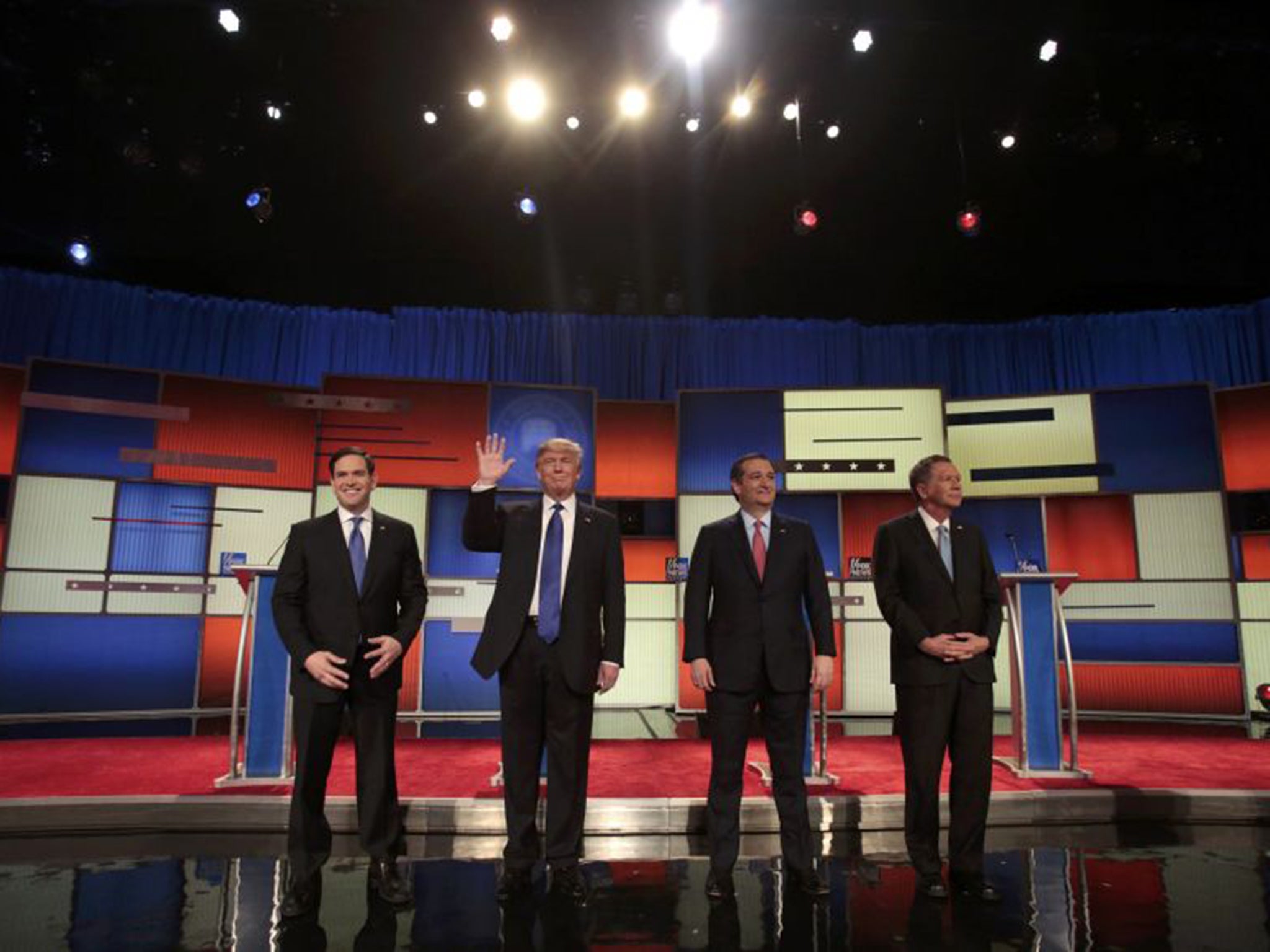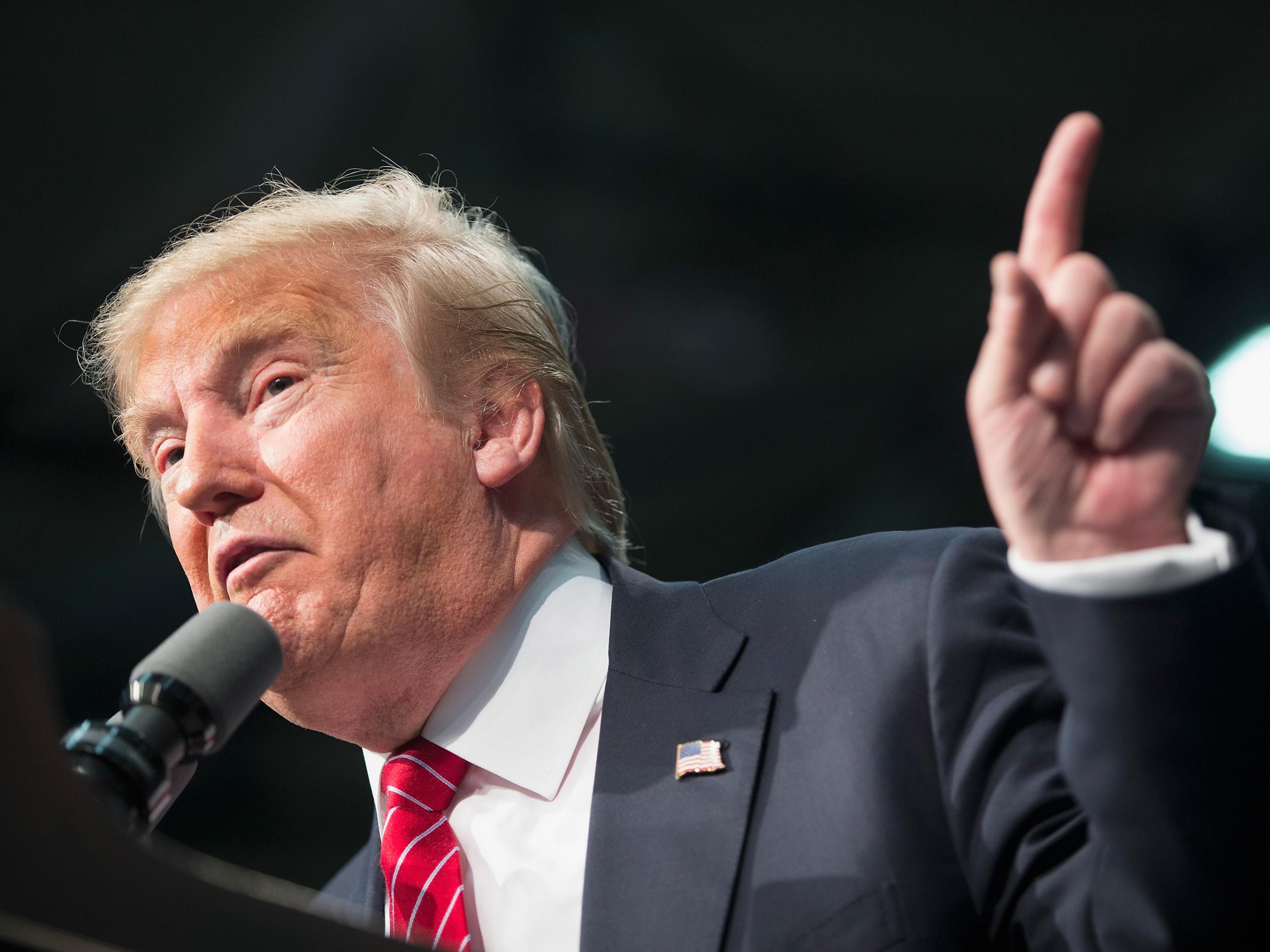US Election 2016: Trump’s rise exposes the rift between Republican grandees and the party's traditional voters
Out of America: Getting rid of Trump is not enough. The GOP must change the policies that opened the way for him, otherwise, it may be doomed


Are we witnessing the death of a once-great American political party? I stress the qualifier “once”. To describe today’s Republicans as the party of Abraham Lincoln is a smear of the country’s greatest president. In its present diminished and mean-spirited incarnation, it is not even the party of its official latter-day saint, Ronald Reagan. But it is a party in the throes of a split that might prove terminal.
The proximate cause of the disarray is, needless to say, Donald Trump. The events of last week were by any standards breathtaking. After Trump’s Super Tuesday successes, that make him favourite to win the presidential nomination in 2016, John McCain and Mitt Romney – the party’s last two nominees – led an unprecedented uprising by the Republican establishment.
Then came Thursday’s vulgar and acrimonious candidates’ debate, as Ted Cruz and Marco Rubio, Trump’s closest challengers, rounded on him. Romney had savaged the property mogul as a fraud and an impostor, taking aim at “the bullying, the greed, the showing off, the misogyny, the absurd third-grade theatrics”. All those qualities (barring misogyny) were on ample display during the debate. Whether that fact, or the unrelenting assaults on Trump, make any difference is anyone’s guess.
Let’s be clear. The Republican Party has fissured before. Indeed, it was born of a fissure, the 1854 rift in the then Whig party over slavery, before the civil war. There was 1912, when Teddy Roosevelt ran as a third party candidate against his Republican successor and incumbent William Howard Taft, handing the White House to the Democrat Woodrow Wilson. Most recent was the early 1960s showdown between conservative Barry Goldwater and the party’s traditional ruling East Coast Wasp elite.
But these divisions were short lived. Wilson’s presidency proved to be a brief Democratic interregnum. Goldwater’s triumph set an ideological template for the party that survives to this day. Most important, neither crisis created the rift between the party establishment and ordinary voters that Trump – nativist, populist and tough-guy outsider – has now exposed. And it is entirely the establishment’s fault.
For two decades, Republicans have been riding a tiger created by former Speaker Newt Gingrich and his “Republican Revolution” of 1994, that turned Washington politics into perpetual war by other means. Non‑co‑operation was the new rule. Compromise became the dirtiest word in the political lexicon. Trust us, its leaders promised, and the revolution will come.
In the meantime, Republicans shored up their position by rigging Congressional districts in their favour, and by using every means to suppress the vote, heavily Democratic, of blacks and other minorities. Under Barack Obama, whose election many Republicans regarded as an affront to the proper order of things, the obstructionism grew even worse, forcing government shutdowns, and slowing the pace of confirmation of presidential appointments to key positions. By no coincidence, the obstructionism has reached new heights as the Republican-controlled Senate, in total defiance of its constitutional duty, refuses even to consider an Obama nominee for the Supreme Court to replace the conservative justice Antonin Scalia.
Republicans argue that the ideological balance of the court is at stake, and that Americans should have a say in the matter. In fact, Americans disagree. Two-thirds want the Senate to hold hearings and vote on a nominee, who may be announced this week.
Helping to underpin this intransigence has been “birtherism”, the belief – still widespread among Republicans – that Obama is not really an American citizen. In the meantime, the party has long outsourced its PR to a slew of conservative talk-show hosts, excoriating Obama, peddling conspiracy theories and promising that, with one final shove, the revolution would happen.

For a long time this con trick worked. Millions of poorer Americans were persuaded to vote against their economic interests, told by Republican leaders that their country was being stolen from them by a wicked liberal elite propagating such godless evils as abortion, gay rights and gun control.
The paradox has been around for ages, most deftly exposed by the political writer Thomas Frank in his 2004 book What’s the Matter with Kansas – explaining how people in his native state, despite its history of populism and farmers being repeatedly betrayed by the agro-business corporations aligned with Republican Wall Street, vote for the party nonetheless.
Ever since, I’ve wondered how long this suspension of political gravity (and common sense) could continue. But Newton’s law has finally reasserted itself. The promised revolution hasn’t materialised. Instead, Donald Trump has, riding this sense of betrayal by a despised Washington establishment, and an abiding fear among many white Americans, especially poorer ones, that the country was being destroyed by immigrants, Muslim extremists and a political correctness that prevents them from speaking their mind. And when it comes to speaking the unspeakable, no one beats Trump.
Maybe the mass attack by a terrified party elite will burst the Trump balloon. If not, the party faces what could be an existential choice. Does it accept the hostile Trump takeover? Or can it somehow force an open convention in Cleveland in July, where Trump enters with the most delegates, but short of an outright majority, and cook up an acceptable alternative nominee? The risk then would be uproar that the will of the people had been thwarted by backstage manoeuvring by the despised establishment.
In either case the real winner would not be a Republican, but Hillary Clinton. And in either case, the party needs a rebirth. Getting rid of Trump is not enough. The party must change the policies that opened the way for him, otherwise, it may be doomed.
Join our commenting forum
Join thought-provoking conversations, follow other Independent readers and see their replies
Comments
Bookmark popover
Removed from bookmarks